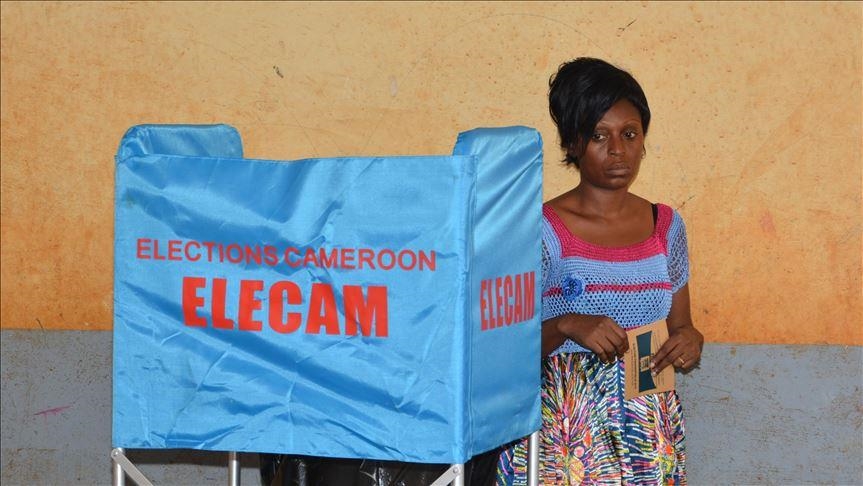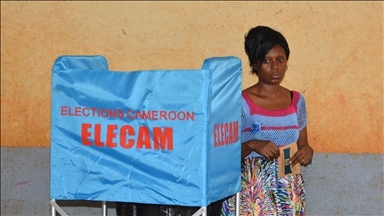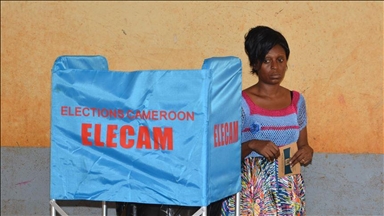EXPLAINER - Cameroon’s presidential election: All you need to know
More than 8M Cameroonians eligible to vote in presidential election

- Main contenders include President Paul Biya’s former allies Issa Tchiroma Bakary, Bello Bouba Maigari
- Candidate with most votes wins, as no absolute majority required
ISTANBUL
Cameroonians will head to the polls Sunday in a presidential election that could see incumbent Paul Biya secure an eighth consecutive term to lead the Central African nation.
The vote comes against the backdrop of growing calls for political change and concerns about insecurity in parts of the country, particularly in the restive Anglophone regions.
Opposition candidates are set to challenge Biya’s decades-long rule, but analysts said the 92-year-old leader remains strongly positioned after his main rival, Maurice Kamto of the Cameroon Renaissance Movement, was barred from running in August for what authorities described as “non-compliance with legal requirements.”
The opposition remains divided, while Biya’s camp maintains control over key state institutions.
Who are the main contenders?
Biya, the world’s oldest and longest-serving elected head of state, has led Cameroon since 1982, following an election in which he ran as the sole candidate after the country’s first president, Ahmadou Ahidjo, resigned.
Having survived two military coup attempts, the veteran leader won the country’s first multiparty election in 1992 and repeated his victories in 1997, 2004, 2011, and 2018.
In the 2018 polls, Biya secured 71.28% of the vote, according to official results.
He heeded calls from his ruling Cameroon People’s Democratic Movement (CPDM) to seek re-election and announced his candidacy July 14, citing an “increasingly difficult international environment.”
Former Employment and Vocational Training Minister Issa Tchiroma Bakary resigned in June and announced his candidacy under the banner of his Cameroon National Salvation Front (FSNC) party.
Bello Bouba Maigari, another former Biya ally and current tourism and leisure minister, accepted the nomination of his National Union for Democracy and Progress (UNDP) party to run for the country’s top seat.
Hermine Patricia Tomaino Ndam Njoya, a former lawmaker and mayor from the Cameroon Democratic Union (UDC), is the only female candidate in the race, focusing her campaign on electoral reform.
Cabral Libii, a lawmaker representing the Cameroon Party for National Reconciliation (PCRN), notably finished third in the 2018 election.
How does Cameroon’s presidential election work?
The election is governed by the Constitution and the Electoral Code, which provides for a single-round, first-past-the-post system, meaning the candidate with the most votes wins without a majority requirement.
In 2008, Cameroon’s parliament approved constitutional amendments removing the two-term limit for presidents, allowing them to serve multiple seven-year terms -- a move that sparked widespread protests.
The vote is overseen by Elections Cameroon (ELECAM), an independent electoral body established in 2006, which has faced criticism for alleged bias toward the ruling party due to the dominance of presidential appointees in its composition.
More than 8 million Cameroonians are eligible to vote in the presidential election, according to ELECAM.
What are the key issues dominating the race?
Opposition parties and activists said Biya’s decades-long hold on power has stifled the economy and the democratic process.
Last year, speculation about his health intensified after he disappeared from public view for several weeks, fueling concerns about succession and potential post-election instability.
Cameroon also faces persistent security challenges, particularly in the Anglophone regions of southwest and northwest, which have been gripped by a separatist crisis since late 2016.
The conflict, rooted in grievances by English-speaking communities who say they are marginalized by the French-speaking majority, has led to violence as separatist groups continue to push for either greater autonomy or independence.
Turnout in the 2018 presidential election exceeded 50% in the eight Francophone regions but dropped below 16% in the Anglophone areas, where separatist threats contributed to low participation, according to the Research and Scientific Innovation Society Journal.
Analysts warn that the security situation could affect voter turnout and the conduct of the election in those regions.





